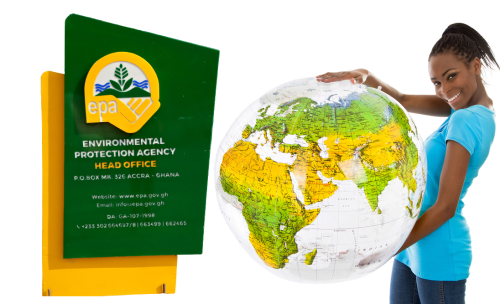Our Regulator for today is the Environmental Protection Agency (EPA). EPA serves as the regulatory body responsible for overseeing environmental protection in Ghana in accordance with the Environmental Protection Agency Act 1994 (Act 490) and the Ghana Environmental Assessment Regulations 1999 (LI 1652) in the following industries:
- Construction: Entities involved activities such as housing development, construction of airports, seaports, harbours, coastal resort facilities, shipyards, amongst others.
- Infrastructure: Entities involved in the construction of hospitals, industrial estates, roads and highways, new townships, dams and man-made lakes, irrigation schemes, railways, and similar projects.
- Manufacturing: Activities involving chemicals, metals, non-metallic cement, limestone, pulp and paper, woodworks, and other related processes .
- Natural Resources: Entities involved in agricultural development, fisheries, forestry, mining, environmental conservation and management, and similar activities .
- Petroleum: Entities involved in Oil and gas production, as well as the construction of offshore and onshore pipelines.
- Power Generation and Transmission: projects related to dams and hydroelectric power, and other power generation and transmission activities .
Where an environmental permit is granted, the permit shall be valid for a period of eighteen (18) months effective from the date of the issue of the permit

